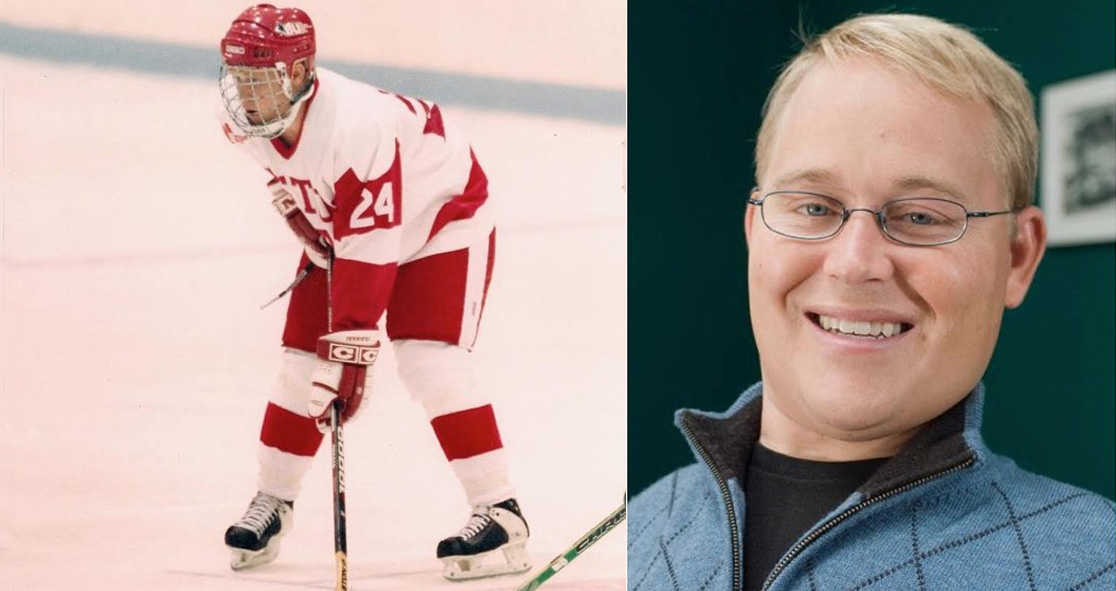Travis Roy, who inspired millions after getting paralyzed in his first college ice hockey game, died Thursday at the University of Vermont Medical Center. He was 45.
Keith VanOrden, Roy’s brother-in-law- confirmed the news of his death. On Tuesday, Roy was taken to the University of Vermont Medical Center for surgery after suffering complications from previous surgery.
Born in Maine, Augusta, Roy grew up in Yarmouth and attended North Yarmouth Academy. He was a freshman at Boston University.
He picked up a spinal injury in his first ice hockey game, which left him paralyzed. The injury was so severe that it left him quadriplegic (paralysis of both arms and both legs).
In 1997, Roy established the Travis Roy Foundation, an organization that helps spinal cord injury survivors and funds research for a cure.
Roy had to use a wheelchair for the rest of his life. He traveled across the country and spoke about his accident and his life, raising millions of dollars for the research. His foundation has helped over 2,100 quadriplegics and paraplegics.
VanOrden said, “He provided hope for people. Anybody who ever spent an hour, or even 10 minutes, with Trav [Travis] left feeling better. He was an inspiration, he put life in perspective. To him, it was all about family and friends. It was a 25-year hardship on him, but it was a 25-year gift for all of us who got to spend time with him.”
Tom Caron, who is the studio host for the Boston Red Sox broadcasts on NESN, said, “I am crushed, absolutely crushed, as are many people.”
“He might be the most inspirational person I’ve ever met in my life. Here was a guy who, who in his darkest hour, found a life that impacted countless families, countless people, who went through what he went through,” Caron added. “And he was reaching out to them in their darkest hour and lifting them up.”
“I can’t tell you how many stories I’ve heard from people who know someone who was in a car accident or a hockey accident and in a hospital dealing with paralysis,” Caron continued. “They’d ask the foundation if they could get hold of Travis. And then you’d find out that Travis had already been over at the hospital and talked to them.”
VanOrden said Roy never forgot where he came from, stating, “In talking to him, one of the messages that came through loud and clear was this overwhelming sense of gratitude he had for the entire New England community, but more importantly the places he was from.” “And he still wanted to see how good he could be and how much of an impact he could have, whether it was as a hockey player or, now, the person running a foundation to help people less fortunate than him,” VanOrden added.























